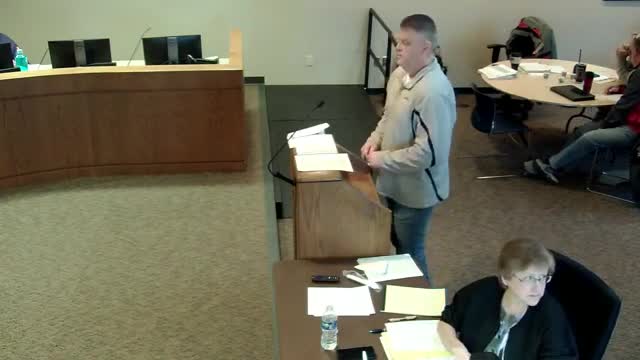Police, fire and ambulance budgets outline staffing pressures and equipment needs
Get AI-powered insights, summaries, and transcripts
Subscribe
Summary
Police and fire chiefs told the council their departments face rising personnel costs, recruitment pressures and equipment replacement needs, from body‑worn camera leases and vehicle strategies to SCBA tanks and ambulance replacement timing.
Waverly’s public‑safety leaders presented department budgets and outlined common challenges: rising insurance and liability costs, competition for recruits, and aging equipment that must be replaced or upgraded.
Police: The police presentation noted 9,467 calls for service in the prior year and emphasized that calls vary greatly in time and investigator workload. The department is moving away from a lease model for vehicles in favor of owning cruisers and placing them on a 3‑year replacement cycle; staff said that leasing had not produced the expected cost or operational benefits. The department also budgeted for ongoing costs associated with body‑worn camera systems and continued training and equipment maintenance.
Fire and EMS: The fire department requested replacement breathing air cylinders (SCBA) and related equipment, saying many packs are nearing the end of their useful service and that newer packs add safety features (LED time indicators and improved ergonomics) and improve interoperability. Fire staff said they expect to fund those purchases from sales tax or reserve funds so as not to burden the general fund.
The city’s ambulance partner, Waverly Health Center Ambulance, told the council it had placed an order for a new ambulance but that lead times can be long — about 18–24 months. Ambulance leadership said they plan to maintain a fourth unit as a backup to cover remount or replacement windows, and noted rising call volumes and transfer demands that contribute to operational strain.
Recruiting and retention were repeated themes. Police and fire chiefs described state‑ and metro‑area pay competition, hiring bonuses elsewhere, travel and moving incentives in larger metros, and the strain of succession planning as senior personnel plan retirements. Departments said they will expand outreach to local schools and programs and maintain internship and scholarship pathways to recruit first‑time candidates.
Council members asked about funding options and the timing of vehicle and equipment purchases; department leaders said some purchases can be staged using reserve funds and planned replacement schedules, while major investments could be included in the city’s capital plan.
No formal actions or votes were recorded on department budgets during the Jan. 25 briefing; departmental line‑item decisions will come back to the council in subsequent budget hearings.
